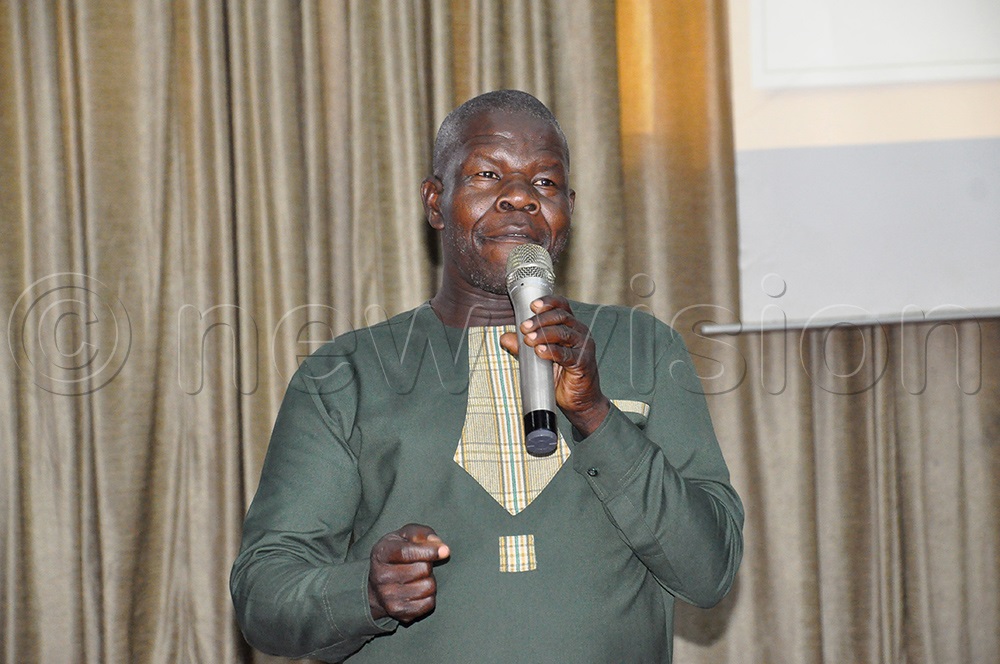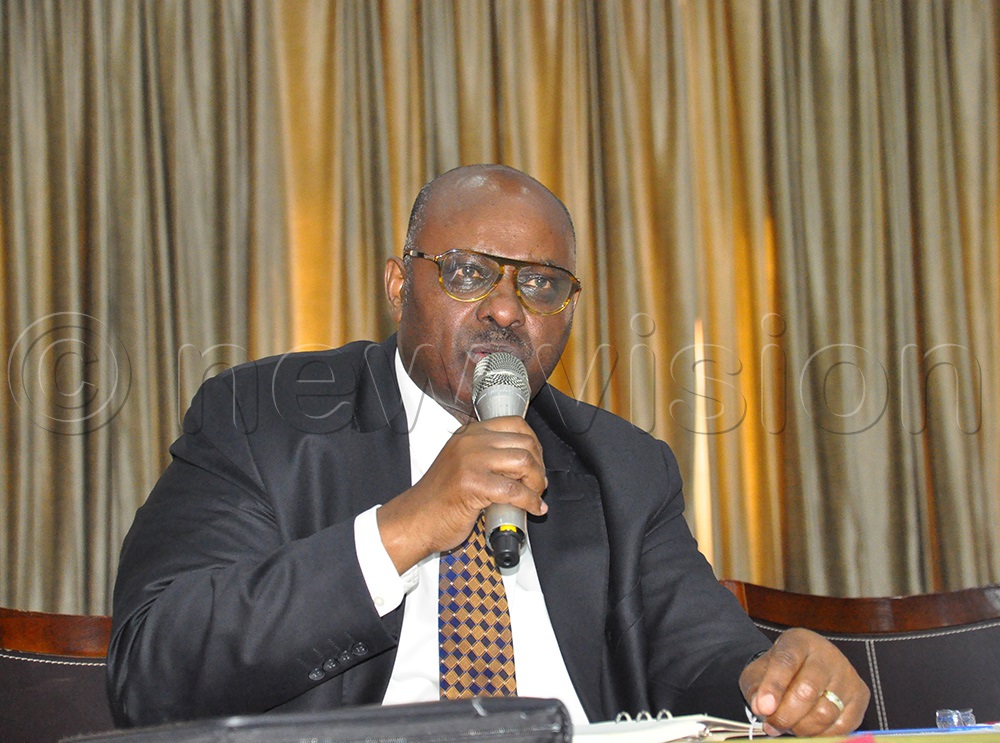Health officers cry foul as RDCs, LC5s take over official vehicles
According to the officers, although the Government distributed over 282 pickups in 2021 — funded through domestic and donor support—to support COVID-19 response efforts, many of the vehicles have since been commandeered by Resident District Commissioners (RDCs), LC5 chairpersons, and chief administrative officers (CAOs).
District and municipal health officers have petitioned the local government ministry, protesting the continued lack of access to official vehicles needed to deliver essential health services. (Photo by Nancy Nanyonga)
___________________
District and municipal health officers have petitioned the local government ministry, protesting the continued lack of access to official vehicles needed to deliver essential health services across the country.
According to the officers, although the Government distributed over 282 pickups in 2021 — funded through domestic and donor support—to support COVID-19 response efforts, many of the vehicles have since been commandeered by Resident District Commissioners (RDCs), LC5 chairpersons, and chief administrative officers (CAOs). As a result, health operations such as disease surveillance, facility supervision and emergency response have been severely hampered.
“These vehicles were meant for health service delivery, but now they’re parked at the homes of politicians or used for non-health-related activities,” Maracha district health officer Dr Paul Onzubo says.
Paul Onzubo, the District Health Officer (DHO) Maracha District, addressing participants during a meeting with District Health Officers (DHO) and District Education Officer (DEO) in Kampala, on September 23, 2025. (Photo by Nancy Nanyonga)
“Meanwhile, we’re grounded and unable to reach health facilities or respond to outbreaks.”
Onzubo made the remarks while addressing a joint workshop of district health and education officers held on September 23, 2025, at Imperial Royale Hotel in Kampala city, under the theme: Strengthening Multi-Sectoral Collaboration for Effective Service Delivery.
In 2021, the Government distributed more than 282 pickups to districts across Uganda to support COVID-19 emergency response teams. The vehicles were funded through both domestic resources and donor support and were intended to bolster disease surveillance, contact tracing, health education and rapid response.
Onzubo said health officers across the country are increasingly forced to surrender departmental vehicles to avoid clashes with district political leadership.
“We are constantly at war with local government leaders over vehicles. Ambulances and pickups meant for the health department are routinely taken over, leaving us stranded,” he said.
Citing a recent case in Kayunga where a district chairperson died in a road crash while driving a hospital vehicle, Onzubo warned that such misuse not only puts lives at risk but also erodes public confidence in the health system.
“That was a health facility vehicle. What was it doing with the chairperson? This not only undermines service delivery but also exposes the sector to unnecessary risk and public scrutiny,” he noted.
Budget shortfalls
He added that health officers are operating with meagre quarterly budgets—as low as shillings 10 million, which are meant to cover all operational costs, including transport and fuel.
“We want to be in the field, but we’ve been reduced to desk officers against our will. Vehicles are not a luxury—they’re a basic tool of work. Without them, we can’t deliver,” he said.
Onzubo also decried a recent directive from the health ministry requiring districts to allocate 5% of Primary Health Care (PHC) funds to ambulance services, arguing that such policy shifts are unrealistic.
“If a district gets shillings 50 million and you’re told to run an ambulance service on 5% of that. That’s just shs2.5m. Can anyone run an ambulance for a year on that? Let’s be realistic,” he said.
He appealed to both the health and local government ministries to provide dedicated transport for political leaders, so they do not encroach on the already-limited health sector fleet.
“We understand that leaders also need mobility. So, why not plan for them directly instead of forcing them to take from health? It’s a question of fairness and planning,” he said.
Several other health officers at the meeting echoed the same frustrations, warning that blurred lines between political oversight and technical operations were severely compromising service delivery.
Education officers speak out
On his part, Raymond Obiayi Ombere, the president of the National Association of Municipal and District Education Officers, also raised concern over the chronic underfunding, transport gaps and increasing political interference in the education sector.
“We are tasked with delivering results, but we’re given no tools. Many of our offices have no transport. Supervision has become almost impossible,” Ombere said.
He added that delayed disbursement of funds has become a major bottleneck, with education officers often blamed for poor performance in programmes like Universal Primary Education (UPE) and Universal Secondary Education (USE) despite having no control over the timing or release of resources.
“We are judged on UPE and USE performance, but the resources come late—or not at all. How can we be effective without timely facilitation?” he asked.
Ombere decried what he called the politicisation of the education sector, where technical staff are sidelined or overridden by RDCs, LC5 chairpersons and CAOs.
“There is too much political interference. Education is a technical profession. We must be trusted to do our work independently and professionally,” he said.
He called for structured engagement between ministries, local governments, and technical officers to restore professional autonomy and strengthen service delivery.
“We are not against accountability or oversight. But it must be exercised with respect for the law and the mandates of each office. Decentralisation was supposed to empower service delivery—not reduce technical officers to spectators,” he said.
What Government says
Responding to the concerns, local government ministry permanent secretary Ben Kumumanya acknowledged the operational challenges faced by both health and education departments, including the misuse of government resources and poor funding.

Ben Kumanya, the Permanent Secretary Ministry of Local Government addressing participants during a meeting with District Health Officers (DHO) and District Education Officer (DEO) in Kampala on September 23, 2025. (Photo by Nancy Nanyonga)
However, he urged teachers to remain professional and avoid resorting to actions that disrupt services, such as strikes.
“You can’t go on strike in the third term and claim to be acting in the public interest. That contradicts the duties of a citizen under Article 29 of the Constitution,” Kumumanya said.
He emphasised that public offices are held in trust for citizens, and that misuse of funds or dereliction of duty would not go unpunished—even after officials leave office.
“If you walk away from your post, you are in direct violation of Article 26. Even if you leave office, the law follows you,” he said, citing Article 170.
Kumumanya also condemned the widespread corruption affecting service delivery, calling it a “cancer in the system” that must be eradicated if public service is to improve.
He acknowledged the gap between constitutional guarantees—such as Article 176, which provides for a sound financial base for local governments—and the actual resources available.
“We know the budget gaps are real. That’s why we consult you during planning. Bring your issues. Challenge us—but do it within the law,” he said.
He encouraged stronger collaboration between technical officers and RDCs, CAOs, and sub-county chiefs to resolve local bottlenecks.
“Use the RDCs. If your CAO won’t act, the RDC is empowered to advise the chairperson or council. You’re not powerless,” he said.
Kumumanya also called on all public officers to embrace professionalism, patriotism, and accountability. “Recognition without facilitation is not enough,” he said. “We know you have the capacity. But capacity must be matched with integrity.”